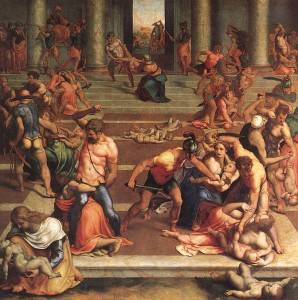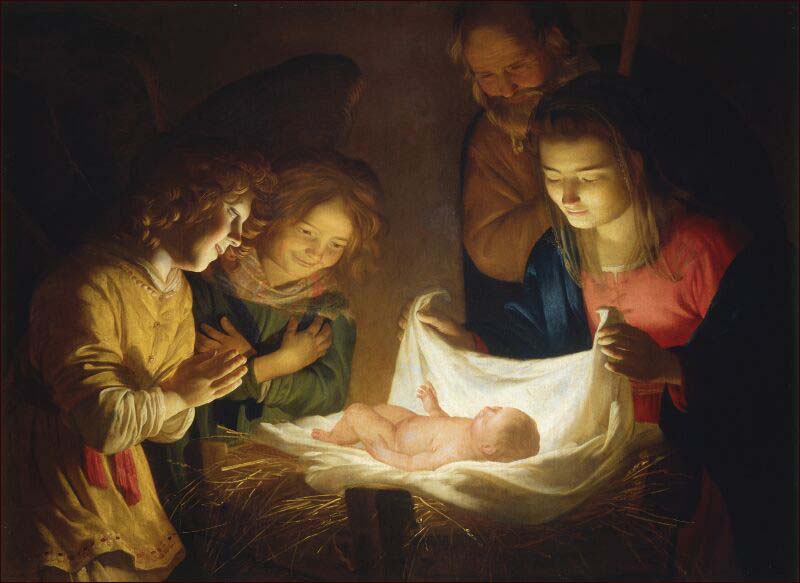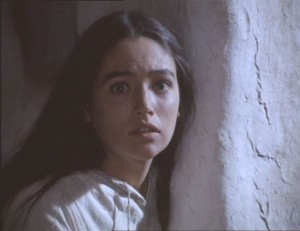Feast Day of the Holy Innocents
On December 28th of every year, the Church Calendar commemorates the Feast Day of the Holy Innocents. The commemoration of the Massacre of the Innocents recalls the events of Matthew 2:16-18. By Herod the Great’s direction, the slaughter of all males two years old and under was ordered in an attempt to kill the infant Messiah.
Liberal scholars question the veracity of this story because the event is only told in the Gospel of Matthew and not mentioned in the writings of Jewish historian, Josephus. Recently, National Geographic magazine reported:
But, gratutiously, and highlighted by a quotation box, they insert the claim that Herod almost certainly did not kill the babies two years old and under in Bethlehem at the time of Jesus’ birth. The sole reason given is that the report of this massacre occurs only in the Gospel of Matthew. Of course, very liberal scholars have said something similar for a long time, but without good reason.
Craig Blomberg, “National Geographic Blows It Again”, PrimetimeJesus.com
Craig Blomberg, Professor of New Testament at Denver Theological Seminary in Colorado points out the inconsistency of the National Geographic argument:
What makes the National Geographic report’s statement all the more unfortunate is that it comes right in the context of fairly detailed recounting of Josephus’ reports of all the cruelty and executions Herod did manufacture. Increasingly paranoid as he got older about supposed threats to his “throne,” he had several of his sons and wives put to death. It would be one thing if Josephus gave one kind of portrait of Herod and Matthew a quite different one, but both sources agree entirely on Herod’s ruthlessness and the specific manner it most manifested itself–repeated murders of those even slightly perceived to be a threat to his power. Reports that a boy had been born with the right ancestral credentials to reign over Israel would easily have threatened this megalomaniac from Idumea who wasn’t even a Jew by birth and would never have survived the installment of someone with the right lineage.
Why then is this murderous tragedy not retold in secular histories? Blomberg explains:
So why didn’t Josephus say anything about these babies? Because, like all other historians of his day, he was concerned to recount the events related to the kings and queens, military generals, aristocracy, and institutionalized leaders of religion of his people–not the lives and times of ordinary peasants. Bethlehem had at most 500 people and, even factoring in large families, one can scarcely imagine more than 20-25 babies affected by Herod’s soldiers’ raids, and perhaps less.  It was a blip on the horizon of Herod’s nefarious resume. It may even have been little reported in circles outside of later Christian ones.
One more time, major press outlets cannot ask one Evangelical scholar for an opinion about a Bible story. The press acts as if Bible-believing scholars do not exist.









